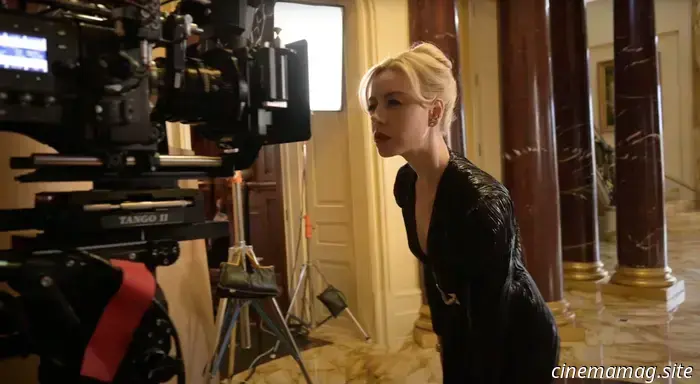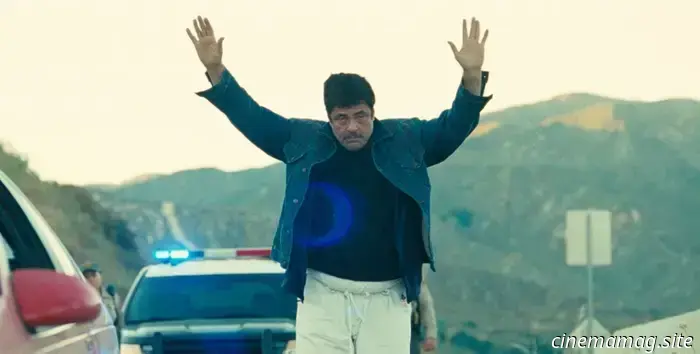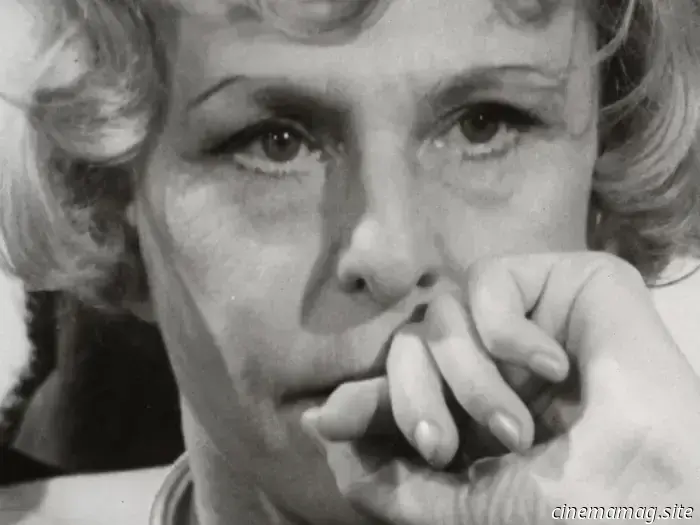
Venice Review: Kathryn Bigelow's A House of Dynamite is a Relentlessly Effective Thriller
If human life were to virtually come to a standstill tomorrow, would it be because of a) the rash decisions of a military hothead, b) the low success rate of even the most advanced interceptor missiles, or c) some other mix of worst-case scenarios? These are among the scenarios explored in A House of Dynamite, Katheryn Bigelow's first film in eight years, a narrative as volatile as its title indicates. The cast features Idris Elba, Rebecca Ferguson, Jared Harris, and Jason Clarke, but the central focus is on a single, rogue nuclear missile. This unseen and unforeseen harbinger of destruction is on its way to Chicago and is set to detonate in twenty minutes—unless those in authority can avert the disaster.
The narrative is divided into three segments, each approximately half an hour long, told from different pairs of viewpoints, all culminating in a similar cliffhanger, which inevitably results in diminishing impact. The initial segment occurs in both the White House (where Ferguson shines) and a missile launch facility (where Anthony Ramos issues commands). The second focuses on an eager general (Tracy Letts) proposing a preemptive counterstrike, along with a jittery NSA advisor (Gabriel Basso, in a significant shift from his role as JD Vance), who calls for calm. In the final segment, we have a self-serving defense secretary (Jared Harris), a brief appearance by Kaitlyn Dever as his daughter, and ultimately the president himself (Idris Elba). Many things do not proceed as planned.
A House of Dynamite is penned by Noah Oppenheim, the writer behind Pablo Larraín’s acclaimed Jackie and the recent Netflix series Zero Day, which shares some of Dynamite's less successful traits. The level of detail is commendable, yet the tone can sometimes be oddly playful, teetering on the edge of absurdity—at one point, which elicited significant laughter during the Venice press screening, a character tries to rise to the occasion by referencing something he heard on a podcast. More frequently, however, Bigelow maintains control. She knows how to keep an audience engaged and does so with relentless precision—if anything, any brief moment of relief the film offers will likely be spent contemplating the precariousness of the situation.
For a director whose recent works have earned her a reputation for capturing the political climate in all its complex uncertainties, the directness of Bigelow’s latest film is jarring. A House of Dynamite is a more frightening, less preachy film than others like Don’t Look Up, yet it remains just as instructive and straightforward in its messaging. Produced by Netflix, and although filmed by Bigelow’s frequent collaborator Barry Ackroyd and featuring notable sound design, it still carries the familiar and uninspired style typical of the streaming giant. While I recognize that few will experience it on a screen as large as Venice’s Salle Darsena, I find it hard to recall any striking visuals amidst its rooms, screens, video calls, and drone footage. At her peak, Bigelow is a remarkable visual storyteller—is it unreasonable to expect a bit more? Nevertheless, A House of Dynamite is a brutally effective thriller, undeniably timely, and has the potential to capture a vast audience. These are all positives.
A House of Dynamite premiered at the Venice Film Festival and is set to open in theaters on October 10, followed by its arrival on Netflix on October 24.
Other articles
 The trailer for Mike Figgis' MEGADOC delves into the turbulent development of Francis Ford Coppola's Megalopolis.
Few recent films satisfy a curiosity quite like MEGADOC. Regardless of the cinematic merit of Mike Figgis' documentary––considering the poorly designed title cards with noticeable typos, the lackluster music, perhaps insufficient engagement with interviewee George Lucas while omitting Spike Lee entirely, and so on––providing that increasingly rare behind-the-scenes glimpse into one of the more intriguing films is commendable.
The trailer for Mike Figgis' MEGADOC delves into the turbulent development of Francis Ford Coppola's Megalopolis.
Few recent films satisfy a curiosity quite like MEGADOC. Regardless of the cinematic merit of Mike Figgis' documentary––considering the poorly designed title cards with noticeable typos, the lackluster music, perhaps insufficient engagement with interviewee George Lucas while omitting Spike Lee entirely, and so on––providing that increasingly rare behind-the-scenes glimpse into one of the more intriguing films is commendable.
 13 Movies to Watch in September
By reviewing our 50-title fall movie preview, you shouldn't encounter many unexpected choices when deciding what to watch in September. However, with our most highly anticipated film of the year releasing this month, alongside some early fall treasures, there is plenty to be excited about. 13. Plainclothes (Carmen Emmi; Sept. 19) is set to premiere earlier this month.
13 Movies to Watch in September
By reviewing our 50-title fall movie preview, you shouldn't encounter many unexpected choices when deciding what to watch in September. However, with our most highly anticipated film of the year releasing this month, alongside some early fall treasures, there is plenty to be excited about. 13. Plainclothes (Carmen Emmi; Sept. 19) is set to premiere earlier this month.
 The gameplay trailer for the zombie survival horror game Outbreak Zero has been released.
Indie developer Next Generation Gaming has unveiled a new trailer (see below) for their forthcoming survival horror title, Outbreak Zero. Set to launch on December 12th, the game will be available on Steam and the Epic Games Store and will feature a terrifying narrative complemented by eerie visuals and intense combat. Outbreak Zero transports players to a city that is […]
The gameplay trailer for the zombie survival horror game Outbreak Zero has been released.
Indie developer Next Generation Gaming has unveiled a new trailer (see below) for their forthcoming survival horror title, Outbreak Zero. Set to launch on December 12th, the game will be available on Steam and the Epic Games Store and will feature a terrifying narrative complemented by eerie visuals and intense combat. Outbreak Zero transports players to a city that is […]
 Riefenstahl Review: An Artist's Depiction as a Nazi Collaborator
It is intriguing what the human mind can rationalize. "Riefenstahl," a documentary by Andres Veiel, delves into the justifications that filmmaker Leni Riefenstahl used to account for her partnerships with the Nazi Party in Germany while they were in power. She maintained these justifications until her death at the age of 101.
Riefenstahl Review: An Artist's Depiction as a Nazi Collaborator
It is intriguing what the human mind can rationalize. "Riefenstahl," a documentary by Andres Veiel, delves into the justifications that filmmaker Leni Riefenstahl used to account for her partnerships with the Nazi Party in Germany while they were in power. She maintained these justifications until her death at the age of 101.
Venice Review: Kathryn Bigelow's A House of Dynamite is a Relentlessly Effective Thriller
If human life were to effectively cease tomorrow, would it be a result of a) the rash actions of a military leader, b) the poor accuracy of even the most advanced interceptor missiles, or c) a combination of various dire situations? These are among the possibilities being evaluated in A House.
